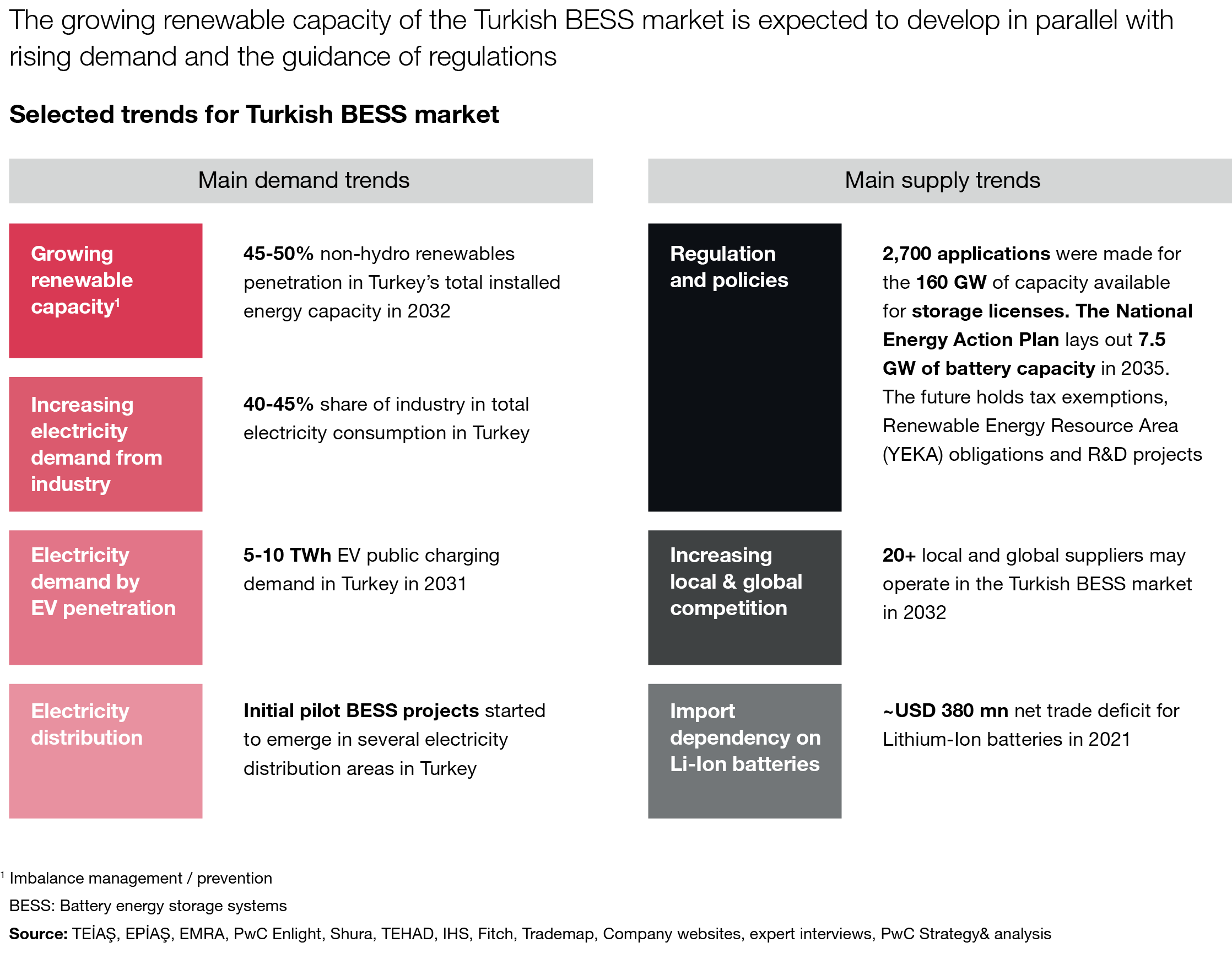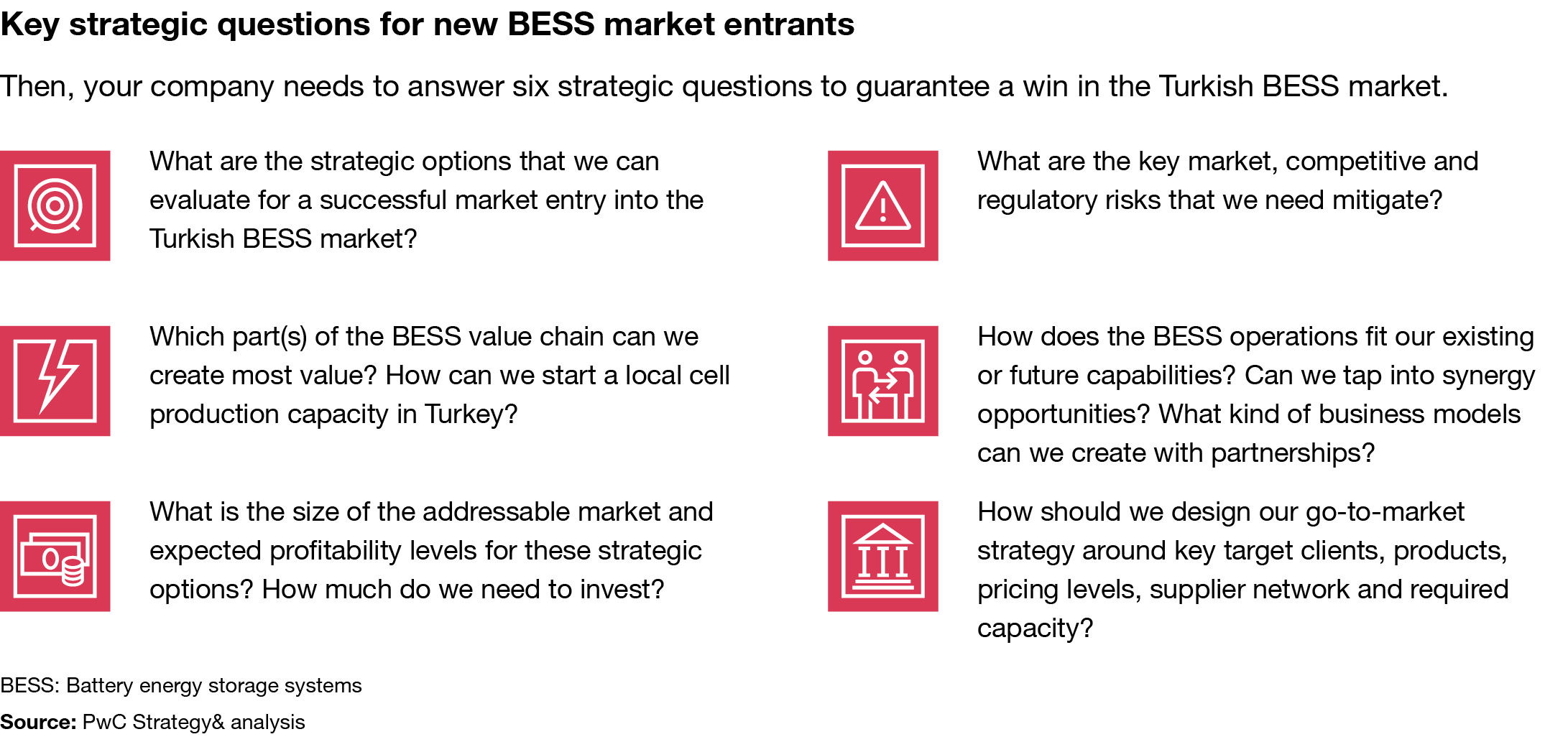{{item.title}}
{{item.text}}

{{item.text}}
The Turkish BESS market is expected to achieve a considerable growth in the next decade. The growing non-hydro renewables capacity, demand from industry and increasing Electric Vehicle (EV) penetration in the country as well as the impacts of the recent Storage License applications and National Energy Action Plan targets are expected to become the most prominent growth drivers for the Turkish BESS market, among others. In this study, a high-level assessment of the global BESS market from size, growth, competition, and regulations perspectives helped us lay out key prospects on the future evolution of the emerging Turkish BESS market. As Strategy&, we support our clients to answer the six inevitable strategic questions for a successful entry into the Turkish BESS market.
Battery energy storage system products have been recognized as an effective and viable solution in the market today to minimize the potential risk of blackout events and load fluctuations so that the flexibility and stability of the grid is ensured. They have started to become an essential part of the national energy strategies of the leading countries around the globe, as exemplified in the EU (European Union)’s RePowerEU plan and US (United States) Defense Act.
According to our estimates, the size of the global BESS demand is expected to reach USD 50-55 billion with a 22% growth per annum in 2032. US and China can capture more than half of the global demand, while Europe constitutes 10-15% with Germany and UK (United Kingdom) as the leading markets.
The growing share of renewables reaching to nearly 60% in the global energy installed capacity in 2030 (Source: IEA World Energy Outlook 2022), industry demand with the increasing electricity wholesale prices, and decreasing battery pack prices are expected to become the most critical growth drivers. Furthermore, key regulations in mature energy markets (i.e., US, UK, and Germany) support the growth of BESS capacities with capacity obligations, nation-wide or state-level targets and tax exemptions.
Turkish BESS market is driven by 4 main demand trends: (i) growing renewable energy sources (RES) capacity, (ii) increasing demand from industry, (iii) electricity demand increase by EV penetration, and (iv)pilot projects in the electricity distribution front. Furthermore, we observe 3 supply trends: (i) regulations and national energy targets, (ii) increasing competition, (iii) import dependency on Li-ion batteries.
Entering into the BESS market presents several opportunities as well as challenges for power generators, new private investors, industry players, grid & transmission operators, EV charging operators and regulators. For instance, renewable power generators can evaluate the opportunities of primary / secondary frequency control, demand shifting and frequency smoothing with BESS. Furthermore, private investors (e.g., private equities, banks, and telecom companies) can develop a business model with BESS capacities installed for virtual power plant, energy flexibility, ancillary services, and arbitrage while BESS can be evaluated as an alternative market entry strategy for renewables industry.


